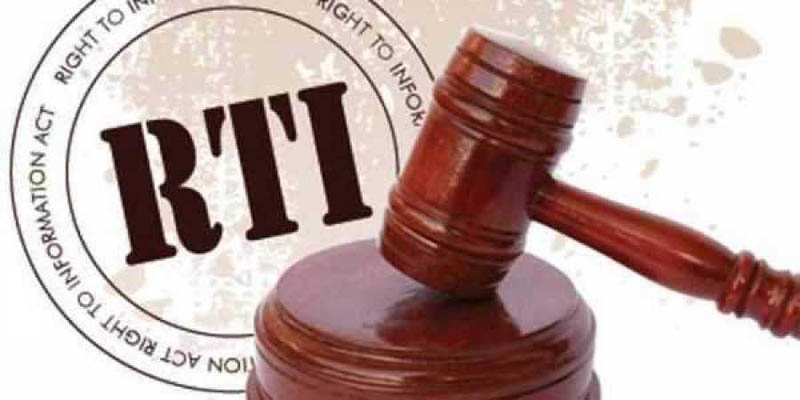No provision for Information Commission in Union Territories
Nearly 800 Appeals, complaints to get transferred to CIC
Mohinder Verma
JAMMU, Aug 11: People of Jammu, Kashmir and Ladakh will face immense difficulties in pursuing appeals under Right to Information Act from October 31, 2019 onwards when the State Information Commission will cease to exist and all the pending proceedings will get transferred to the Central Information Commission at Union Capital.
As per the provisions of the Jammu and Kashmir Reorganization Act, 2019, the Jammu and Kashmir Right to Information Act will get repealed and Central Right to Information Act will be applicable to the Union Territory of Jammu and Kashmir and Union Territory of Ladakh from October 31, 2019.
Section 15(1) of the Central Right to Information Act states: “Every State Government shall, by notification in the official Gazette, constitute a body to be known as State Information Commission to exercise the powers conferred on and to perform the functions assigned to it, under this Act”.
However, the Act is silent about setting up of Information Commissions in the Union Territories and it is because of this that there is no Information Commission in the Union Territory of Puducherry and Union Territory of Delhi both having Legislature.
Earlier, there was Information Commission in Puducherry but the same was abolished by an order dated July 31, 2007 on the directions of the Union Government and all the proceedings were transferred to the Central Information Commission at Union Capital.
“Similarly, there will not be Information Commission in the Union Territory of Jammu and Kashmir and Union Territory of Ladakh from October 31, 2019 onwards and 550 Second Appeals and 250 complaints under Jammu and Kashmir Right to Information Act, which are pending before the State Information Commission at present, will get transferred to the Central Information Commission at Delhi for disposal”, legal experts said.
It is pertinent to mention here that First Appeal under Right to Information Act is filed before the First Appellate Authority while as Second Appeal is filed only before the Commission.
In the absence of the Commission the RTI movement, which has gradually gained momentum during the past some years, will suffer immensely “, legal experts said, adding “the main difficulty will be with regard to pursuing Second Appeals before the Central Information Commission as appellants will have to travel up to Delhi for the same”.
“Either there will be decline in filing applications under the Central Right to Information Act or applicants/appellants will stop filing Second Appeals as the same would involve huge expenditure on travelling up to Union Capital”, they further said.
Drawing comparison with the people of Union Territory of Delhi, the experts said, “for the applicants/appellants residing in National Capital pursing appeals before the Central Information Commission is not a daunting task but for the people of Union Territory of Jammu and Kashmir and the Union Territory of Ladakh the same would involve covering hundreds of kilometres distance that too as personal expense”.
“There are only two options to ensure that there is no decline in the RTI movement—first is to amend the Central Right to Information Act to make provision for establishment of Information Commission in the Union Territories particularly that of Jammu and Kashmir and second is to set-up Circuit Bench of Central Information Commission in this part of the country”, the experts said.
They further said, “no doubt no Circuit Bench of the Central Information Commission has so far been established in any part of the country but as an exception this can be done in respect of Union Territory of Jammu and Kashmir”, adding “in the absence of mechanism to facilitate disposal of Second Appeals without putting the appellants to difficulties the Union Territory of Jammu and Kashmir and Union Territory of Ladakh will remain deprive of the benefits of the transparency law”.
It is pertinent to mention here that transparency watchdog is imperative in Jammu and Kashmir, which has already gained the notoriety of being one of the most corrupt parts of the country.


